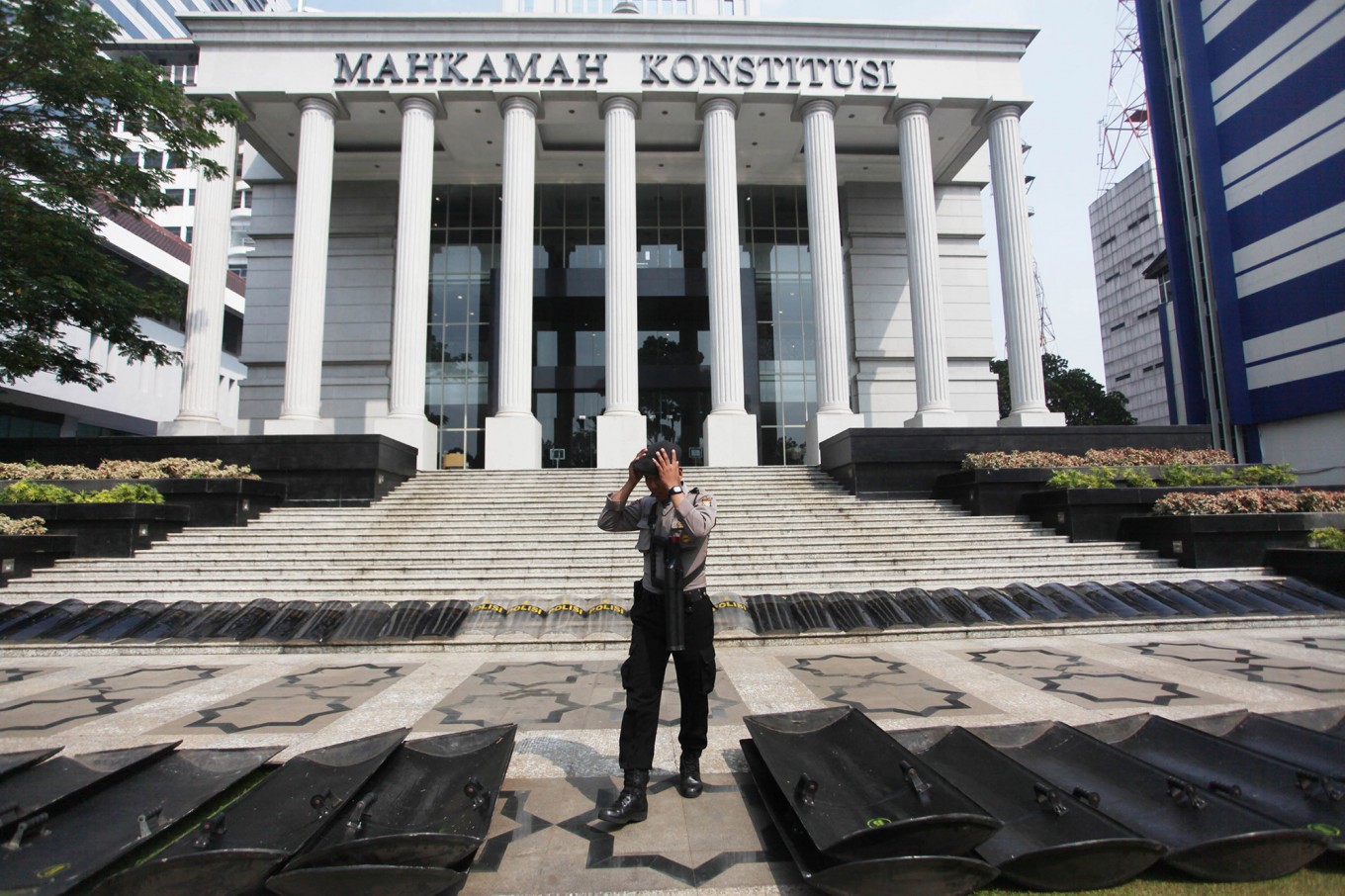Popular Reads
Top Results
Can't find what you're looking for?
View all search resultsPopular Reads
Top Results
Can't find what you're looking for?
View all search resultsCitizenship Law tears family apart
Change text size
Gift Premium Articles
to Anyone
E
motion took center stage at the Constitutional Court on Thursday as fact witnesses in a petition against a transitional provision in the 2006 Citizenship Law told the bench about issues facing their families.
In tears, they said the provision posed a risk to transnational families, particularly as it hampered children of mixed marriages in obtaining Indonesian citizenship.
Megawati Gani, an Indonesian who married an American in 2002, was surprised when her two children, who hold American passports, received different treatment when seeking Indonesian visas at the Indonesian Consulate General in New York in 2014.
Her first child, born in 2003, received an Indonesian visa, while her second child, born on the day the law was enacted in 2006, instead received an Indonesian passport. At the time, they lived in Connecticut, a two-hour drive from New York, where the closest Indonesian representative office is located.
“It was because I was preoccupied by my daily activities and limited social life that I did not get the chance to learn about the 2006 Citizenship Law,” fact witness Megawati told the bench.
It was only after she brought her children to live in Indonesia — following a split from her husband — that the provision in question tore apart the family, with her 13-yearold son leaving the country in June to live with his father in the US.
“Perhaps it was because he saw the hurdles I was facing when seeking his stay permit that my son told me he would like to return to the US with his father,” Megawati said as she began to weep.
“In June, my son left for the US and parted with me and his little sibling because he is indeed a foreign citizen.”
Megawati was among four Indonesian mothers of transnational children who took the stand as fact witnesses for Ira Natapradja, a petitioner who is challenging the transitional provision that recently jeopardized her daughter Gloria Natapradja Hamel’s membership of the national flag-hoisting team, with the help of the Indonesian Mixed-Marriage Society (Perca).
Another witness was Kevin Joshua Scheunemann, who had to file for naturalization despite being born to an Indonesian mother in 1991.
Some deem the 2006 law progressive as it allows dual nationality for children under 18 who are born to transnational couples, unlike the previous 1958 law that automatically recognized transnational children of foreign fathers as aliens.
Under the existing 2006 law, when children turn 18, they have three years to choose one citizenship, otherwise they automatically lose the right to choose and the state will only recognize their foreign citizenship.
But it is the transitional provision in question, which is supposed to provide leeway for children born to mixed-marriage couples before the law was enacted, that has hampered many children in obtaining Indonesian citizenship.
The article stipulates that those children are only entitled to Indonesian citizenship if they registered with the Law and Human Rights Ministry within four years after the law was enacted, or by 2010.
Almost all the witnesses said a lack of information about the article had kept them in the dark, resulting in them losing the chance to obtain limited dual citizenship for their children, as in the case of Yuliana, the mother of a 14-year-old girl born in 2002 who found out about the requirement years after the grace period had ended.
Other than the lack of information, different views of ministry and immigration officials had also hampered Scheunemann in obtaining Indonesian citizenship. He instead became a German national despite his German father becoming an Indonesian citizen in 2010.
Representing the government in the judicial review case, Hotman Sitorus of the Law and Human Rights Ministry said “the government, without doubt, has no intention to stir up such intricate problems”.










